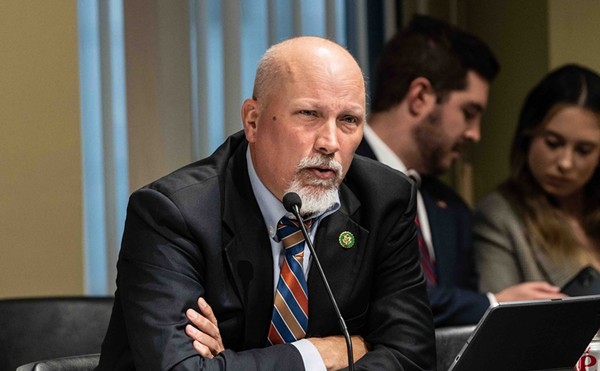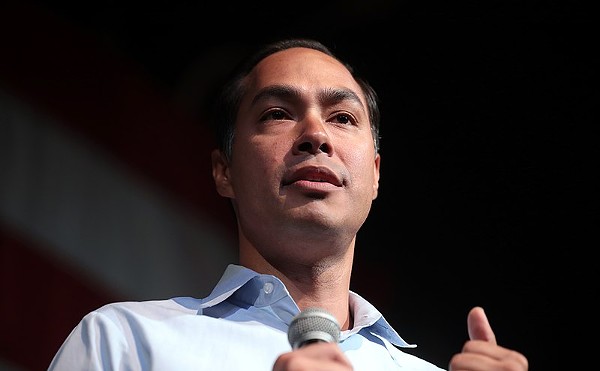
The U.S. Supreme Court has agreed to hear arguments over a Tennessee law that bans gender-affirming care for minors, wading into the issue of trans health care for the first time.
Tennessee’s law prohibits doctors from prescribing medical treatments, like hormone therapies and puberty blockers, to help a minor transition from the sex they were assigned at birth to the gender they identify as. The Biden administration, along with trans teens in Tennessee, challenged the law, alleging it violates the equal protection clause of the 14th amendment.
Texas passed a similar law last legislative session, prohibiting doctors from using puberty blockers and hormone therapy to help a minor gender transition. The law went into effect Sept. 1, despite an ongoing legal challenge before the Supreme Court of Texas.
Texas’ high court is expected to rule this year, long before the Tennessee case gets resolved next summer. But by setting a national precedent and signaling how it intends to handle these cases, the U.S. Supreme Court’s ruling will inevitably have ripple effects in Texas and foreshadow how future fights over trans health care access may play out.
Where the Texas case stands
In 2023, Texas legislators joined their colleagues in other red states in passing a slate of anti-LGBTQ+ bills. The highlight was Senate Bill 14, authored by New Braunfels Republican Sen. Donna Campbell and sponsored in the House by Rep. Tom Oliverson, a Cypress Republican.
The law effectively bans transition-related health care for anyone under 18 years old by threatening to revoke the licenses of doctors who prescribe puberty blockers, hormone therapy or other medical care specifically for the purpose of transitioning. Teens who are already receiving this care were required to be weaned off of it by their doctors.
In July 2023, before the law went into effect, several families sued to block the law from going into effect, saying it violates their parental rights. Several doctors also joined the lawsuit, saying the law interferes with their ability to practice medicine.
While other states saw their laws challenged in federal court, advocates in Texas chose the state court path in large part because of Texas’ robust protections for parental rights.
“The Texas Constitution provides stronger rights for parents, stronger rights in the guarantees of equality ... and much stronger rights with respect to the individual rights of autonomy,” Lambda Legal senior counsel Paul Castillo said when the lawsuit was filed. “Those decisions that rest with parents are at their apex when they are made in consultation with physicians who recommend this medically necessary care.”
In August 2023, state District Judge Maria Cantú Hexsel in Austin agreed that Texas had violated these parents’ rights. She wrote in her ruling that SB 14 “interferes with Texas families’ private decisions and strips Texas parents … of the right to seek, direct, and provide medical care for their children.”
The Texas Attorney General’s office immediately appealed to the Texas Supreme Court, a legal move that allowed the law to go into effect Sept. 1.
The Texas Supreme Court, made up entirely of elected Republicans and considered one of the most conservative state supreme courts in the country, heard arguments in January.
Lawyers representing the families pointed to the fact that every major medical association in the United States endorses gender-affirming care as a treatment for gender dysphoria, the distress someone can feel when the sex they were assigned at birth doesn’t align with the gender they identify as.
While the state has the right to regulate medicine, the law goes too far in infringing on a parent’s constitutional right to direct a child’s care, Kennon Wooten, a partner with Scott, Douglass & McConnico who argued on behalf of the families, said at the hearing.
The state, meanwhile, argued that this law is about protecting the well-being of Texas’ kids, arguing the medical associations have been “ideologically captured.” Natalie Thompson, then an assistant solicitor general for the state, said the law doesn’t violate parental rights because it is removing certain medical treatment options entirely, not governing how and when a parent can provide their child with access to it.
It was not immediately clear from the hearing whether the justices intended to rule that the law was constitutional, as the state wanted them to, or send the case back to a lower court for further scrutiny.
“It seems to be what the court is really asked to do is resolve what is ultimately a moral and philosophical question as opposed to a scientific question about the nature of men and women,” Justice Jimmy Blacklock, Gov. Greg Abbott’s former general counsel, said at the hearing.
How other courts have ruled
While Texas’ case is proceeding in state courts, federal judges have issued scattershot rulings on similar laws across conservative states.
In Tennessee, U.S. District Judge Eli Richardson, a Trump appointee, ruled that the state’s new law violated the Equal Protection Clause of the U.S. Constitution’s 14th Amendment by prohibiting treatments for trans teens that it would allow for other teenagers.
In an aspect of his ruling that is especially relevant in Texas, Richardson ruled that “parents have a fundamental right to direct the medical care of their children, which naturally includes the right of parents to request certain medical treatments on behalf of their children.”
The 6th U.S. Circuit Court of Appeals preliminarily sided with Tennessee and allowed that law to go into effect in July.
A federal judge in Kentucky originally blocked that state’s ban from going into effect, but after the 6th Circuit ruling, reversed course and allowed it to proceed.
In September, the 6th Circuit ruled on both Tennessee and Kentucky’s laws, saying restrictions on gender-affirming care do not discriminate on the basis of sex, and both states’ bans can remain in place while lawsuits proceed.
In April, the U.S. Supreme Court allowed an Idaho law to go into effect banning gender-affirming care for minors. Since that ruling was in response to an emergency application, it did not include the justices’ full thoughts on the merits of these cases, but the decision was sharply split along ideological lines, foreshadowing how future cases might unfold.
The U.S. Supreme Court has yet to take on the thorny legal questions bubbling up in lower courts about trans rights, sidestepping controversial cases about bathroom access, discrimination and youth athletics.
By taking on this case, the conservative-majority court is showing a readiness to wade into this legal morass, which could have massive implications for the laws already on the books — and future efforts to restrict health care access for trans people.
“The future of countless transgender youth in this and future generations rests on this Court adhering to the facts, the Constitution, and its own modern precedent,” Chase Strangio, deputy director for transgender justice at the ACLU’s LGBTQ & HIV Project, said in a statement.
This article originally appeared in the Texas Tribune.
The Texas Tribune is a member-supported, nonpartisan newsroom informing and engaging Texans on state politics and policy. Learn more at texastribune.org.
Subscribe to SA Current newsletters.Follow us: Apple News | Google News | NewsBreak | Reddit | Instagram | Facebook | Twitter| Or sign up for our RSS Feed
















